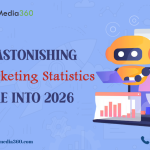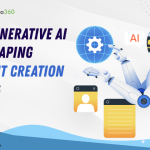The Future of Marketing Attribution

In today’s rapidly evolving digital landscape, understanding the effectiveness of marketing efforts is paramount. Marketing attribution has long been a crucial aspect of this understanding, helping businesses allocate their resources wisely and optimize their strategies. However, as consumer behavior and technology continue to change, the future of marketing attribution is taking shape in innovative ways. In this article, we will explore the evolving landscape of marketing attribution and its six key aspects:
Multi-Touch Attribution Models
Traditional attribution models often relied on last-click attribution, giving credit to the last interaction before a conversion. However, the customer journey is rarely linear. Future attribution models will increasingly embrace multi-touch attribution, which considers all touchpoints along the path to conversion. This approach provides a more holistic view of the customer journey, allowing marketers to better understand the impact of various marketing channels and touchpoints.
Data Integration and Analysis
The future of marketing attribution will rely heavily on data integration and advanced analytics. Marketers will leverage data from various sources, including online and offline channels, customer relationship management (CRM) systems, and third-party data providers. By integrating and analyzing this data, businesses can gain deeper insights into customer behavior and make more informed marketing decisions.
Artificial Intelligence (AI) and Machine Learning (ML)
AI and machine learning will play a pivotal role in the future of marketing attribution. These technologies can process vast amounts of data in real time, identify patterns, and make predictive recommendations. AI-driven attribution models will enable marketers to optimize campaigns on the fly, allocating budget to the channels and strategies that are most likely to drive conversions.
Cross-Device Attribution
As consumers switch between devices and platforms, tracking their interactions across devices becomes increasingly important. Future marketing attribution models will focus on cross-device attribution, allowing marketers to understand how different devices contribute to the customer journey. This insight will be crucial for creating seamless, personalized experiences across devices.
Privacy and Compliance
With growing concerns about data privacy and regulations like GDPR and CCPA, the future of marketing attribution will prioritize privacy and compliance. Marketers will need to find innovative ways to gather and use customer data while respecting privacy rights. This may involve anonymizing data, obtaining explicit consent, and providing transparency in data usage.
Custom Attribution Models
While standard attribution models will continue to be useful, businesses will increasingly develop custom attribution models tailored to their unique needs. These models will take into account industry-specific nuances, customer behavior patterns, and evolving marketing strategies. Custom attribution models will provide a competitive advantage by offering more precise insights.
In conclusion, the future of marketing attribution is dynamic and promising. As technology and consumer behavior evolve, businesses must adapt their attribution strategies to stay ahead. Embracing multi-touch attribution, harnessing the power of data integration and AI, addressing cross-device challenges, and ensuring privacy compliance are all essential steps in shaping the future of marketing attribution. By staying agile and innovative, businesses can unlock new insights and achieve greater marketing success in the years to come.






